Morningstar Read online
Page 9
Where else? There was always, always somewhere else.
But mostly we stayed put.
My mother did not like to travel. She did not like to leave her own mother, who had a vague heart ailment and always seemed close to death, though she lived until she was eighty or eighty-two or eighty-three (no one really knew, because they’d changed her birth date so she could go to work in the mills sooner). Every other summer we four—Mom, Dad, my brother Skip, and me—got into our green Chevy station wagon and drove to Indiana to visit my father’s family. To make it exciting each time we stopped at a different attraction—Niagara Falls; Hershey, Pennsylvania; Amish country; Montreal. I thought it was exciting anyway, leaving Rhode Island and driving through six other states, sleeping in motels with pools that reeked of chlorine and beds that shook if you put a dime in them. My mother packed a cooler with fried chicken and sodas and kept Underwood deviled ham and potato chips in a bag at her feet. But the night we stopped at the motel we ate out, maybe at a Howard Johnson’s or Cracker Barrel, and we got to order anything we wanted. Once, in Montreal, we ate at a steakhouse and Skip, who had just started to learn French in school, ordered petits pois and bifteck, impressing us all; in Niagara Falls we ate in a restaurant at the top of a building that slowly rotated, a feat of engineering that dazzled me.
I carefully wrote down all the license plates I saw, wishing I lived in New Mexico for its yellow-and-red one with LAND OF ENCHANTMENT on it, or Colorado with its green license plate and white snowcapped mountains at the bottom. After one trip, I wrote to the governor of Rhode Island and suggested we change from our dull black-and-white plate to a blue one with whitecapped waves. He never wrote back. But that was how great my desire for somewhere special was, I would design a new license plate just to make my little state stand out somehow.
My hometown of West Warwick had once been special, long before I was born. In 1809, the Lippitt Mill was built there, and it holds the distinction of being the second-oldest mill in the state, and one of the oldest textile mills in America. And Fruit of the Loom was born in my town in 1865, eventually having more than one thousand looms at work in its mill. But when I was a kid, the biggest mill had long since burned down, and many of the other mills that lined the polluted Pawtucket River had closed. We had a main street, with a square stone town hall and a square stone post office and a square stone bank that stayed open late on Friday evenings. There were two women’s shops and one men’s—Maxine’s, Seena’s, and St. Onge; a Newberry’s five-and-dime with a lunch counter, cages of parakeets, and bins of notions; Irene’s, a hat shop, where my mother got the hats she wore to church (this was her standard Mother’s Day gift until Irene’s closed); and the Palace Theatre, where for thirty-five cents my cousins and I saw double-feature matinees like A Hard Day’s Night and Up the Down Staircase. There was a New York System too, a Rhode Island oddity that sells special small hot dogs—hot wieners—in steamed buns with a secret meat sauce, chopped onions, mustard, and celery salt on top. Usually a person would eat three hot wieners, except my brother and father who ate six or even nine.
But by the time I was in ninth grade, although the square stone buildings and the New York System remained, everything else was gone, the buildings boarded up, the XXX movie theater replacing my beloved Palace Theatre. St. Onge had moved to the new mall, the other stores had simply vanished. Even though my father still went to the bank on Friday evenings, he came right home. No more window-shopping or ducking into Newberry’s for shiny buttons or artificial flowers for my mother to arrange as a centerpiece. Living in what I saw as a dead-end town, I wanted, even more than ever, to go. I wanted to eat dog stuffed with rice in Morocco and go skiing in Greece.
Then I found the perfect novel sitting on the library shelf: Doctor Zhivago by Boris Pasternak. At 1,059 pages, it didn’t so much sit on the shelf as dominate it. And the title—the mysterious combination of Zh . . . I tried to imagine how to pronounce it. Like Shh? Like Za? The writer’s name too: Boris. I lived in a world of Michaels and Stevens and Johns; Vinnys and Tonys and Joes. The only Boris I’d ever heard of was Boris Badenov from Rocky and Bullwinkle. So I knew that this writer was Russian. Somehow even then, as a thirteen-year-old girl who knew almost nothing, I did know the magic of books. I understood as I held that hefty book in my hands, staring at the unusual cover—a drawing of a small house in a snowy field with a horse-drawn carriage approaching, all of it covered with what looked like a child’s crayoned lines in mustard, mauve, and teal—that this Russian novel would transport me from my own little town to Russia, a place about which I knew nothing except that they had nuclear bombs pointed at us, they were Communists, and just the summer before they had invaded Czechoslovakia—Mama Rose and I had watched on television as the tanks rolled down the streets of Prague.
THERE HAD BEEN a movie of Doctor Zhivago five years earlier, with Omar Sharif and Julie Christie. My parents had walked out halfway through—too slow, too boring, too long, too much snow. But the novel—the novel!—was none of these things. At least, not to me. It was confusing, jumping in time and point of view. Vladimir Nabokov called Doctor Zhivago “a sorry thing, clumsy, trite and melodramatic, with stock situations, voluptuous lawyers, unbelievable girls, romantic robbers, and trite coincidences.” Reviewers described it as “having no real plot, confused chronology, oddly effaced main characters, and contrived coincidences.” All of which is true, even though Boris Pasternak won the 1958 Nobel Prize for Literature shortly after Doctor Zhivago was published.
I admit that I loved those coincidences that Nabokov and many critics hated. I loved how Yuri could end up in the same town as Lara and wander into the library and see her there, or how Yuri gets wounded and is a patient, and later a doctor, in the military hospital where Lara is a nurse. I believed, or wanted to believe, in chance encounters, true love, and romance. I was confused by the characters, all of whom had three names and even nicknames, almost impossible to keep straight. But that didn’t really matter to me because all I cared about was Lara and Yuri, their unrequited love. How he looked at her in wonder and amazement! How he vowed to try not to love her! But love is stronger than that, Pasternak told me. Yuri couldn’t resist. And ever so briefly, Lara is his.
In his introduction to a reissue of the novel, John Bayley wrote: “The best way to understand Doctor Zhivago is to see it in terms of this great Russian literary tradition, as a fairy tale.” Except in this fairy tale, no one lives happily ever after. Yuri Zhivago dies alone in Moscow; Lara dies in a gulag during Joseph Stalin’s Great Purge; their daughter, Tanya, abandoned in the Urals by her mother when she was a child, is a laundress.
Perhaps ultimately Doctor Zhivago was what it never intended to be, as Richard Pevear wrote in his introduction: “a moving love story set against the grim realities of twentieth-century Russian history.” The novel opens in 1903 at the funeral of Yuri’s mother and moves from there to the Russian Revolution of 1905, the civil war, World War I, and World War II, with uprisings and protests and skirmishes and Cossacks and the White Army and Tsarists and more throughout. So many historical events and facts that I had never heard of that I made a list while reading: Nikitsky Gate, The Presma, Bourgeoisie, Faust, Komuch, Tolstoyan, Pushkin . . . And I spent long afternoons looking up all of these things and more.
In school, we had studied American history and, that year, ancient Rome. But to me, Russia was a mysterious place with nuclear missiles pointed at us, a country I knew virtually nothing about. Until Doctor Zhivago. I read Pasternak’s descriptions of the six-mile-long Kologrivov estate with sheaves of wheat and a river gleaming beyond “fields following fields” until they were lost in the distance. “These vast expanses gave him [Yuri] a feeling of freedom and elation. They made him think and dream of the future.” Wasn’t I too seeking that feeling of freedom? My town offered only the opposite; the mills and polluted river seemed to conspire to prevent elation.
We had no grand houses really; the town had streets lined with old mil
l houses and the triple-deckers the immigrants eventually bought. Even the newer developments, though neat and tree-lined, offered only small split ranches or colonials. To read about the Gromekos’ house, with its top floor of bedrooms and studies and a boudoir—Boudoir! Another word I had to look up!—was intoxicating. My own house was typical of the 1960s makeovers: Formica and paneling, artificial flowers and fruit, avocado and harvest-gold accents. The Gromekos’ curtains were pistachio colored, their upholstery olive green, and their potted plants resembled seaweed “like a green, sleepily swaying seabed.”
The Gromekos hosted chamber music with piano trios, string quartets, and violin sonatas. So unlike the Johnny Cash music my parents played on our stereo, or the folk records I played alone in my room! Even the food Pasternak described, the supper table “white and long as a winter road,” “the frosted bottles of red rowanberry cordial” and “crystal cruets in silver stands” transported me to a different world, a place completely unlike my home, with the tablecloth covered with plastic and the red sauce and meatballs and sausage—delicious and comforting and plentiful, certainly, but served on mismatched platters and bowls. No “picturesque arrangements of game and zakuski [yet another word to look up]” or “baskets of mauve cineraria [and another!] smelling of almonds.” All of it—the golden domes of churches and the girls in white dresses on Whitsun Eve, the green birch saplings hung over the church railings, the potatoes covered with old blankets and hay in the cellar, even the Proclamations posted on doors describing the various rules and punishments under the Red Army—whetted my already big appetite for travel and adventure, for some other place, pointed my compass outward.
But Doctor Zhivago pointed me inward too, toward other Russian novels, like Anna Karenina and War and Peace by Leo Tolstoy; nonfiction books about Russia, like The Gulag Archipelago by Aleksandr Solzhenitsyn and Nicholas and Alexandra by Robert K. Massie; and toward epic novels in general. After I had devoured all of the Russians, I discovered Victor Hugo’s Les Misérables and began the same obsession with French literature.
Like Doctor Zhivago, Les Misérables has its critics. At 1,232 pages (arguably the longest novel in European literature), it is described by The Guardian as a novel of “gargantuan length and exaggerated coincidences,” in which “everything seems utterly improbable and every plot twist operates through coincidences: a father doesn’t recognize his son, a criminal doesn’t recognize a man he has pursued for years . . .” Even Hugo himself called Les Misérables “formidable, gigantic, colossal, monstrous.” But these were the very things I loved about epic novels, which by definition center upon a hero and great events narrated in an elevated style. I loved nothing more than to lose myself in these gargantuan novels with their pages and pages of characters and stories and settings and drama.
By the time I read Les Misérables, as a sophomore or junior in high school, I had also fallen in love with American literature of the 1920s (How? I cannot really say except once again I serendipitously discovered Fitzgerald and Hemingway on the library shelves), in particular with Zelda Fitzgerald (I read and reread the Nancy Milford biography that came out the following year) and her life in Paris. Hugo’s novel was described by scholar Kathryn Grossman as “in many ways, a love affair with Paris.” While Hugo was in exile in Britain, Baron Haussmann razed the old Paris that Hugo loved, and that is the setting for Les Misérables; a Paris of narrow streets and alleys and hidden neighborhoods that had existed since medieval times but was replaced with the broad avenues and open plazas we associate with the city today—a plan meant to eliminate the congestion that fostered diseases and to prevent the building of the very revolutionary barricades that Hugo describes.
Of course, Les Misérables led to my reading The Hunchback of Notre-Dame and The Count of Monte Cristo and to fall in love, as I had with Moscow and the Urals, with Paris, where in the Luxembourg Gardens “the air was warm, the garden was inundated with light and shade . . . the sparrows were giving vent to little twitters in the chestnut trees” and where, at the Saint-Paul- Saint-Louis church in the Marais, “people halted on the Rue Saint-Antoine to gaze through the windows at the orange flowers quivering on Cosette’s head.” Hugo once said, “He who contemplates the depths of Paris is seized with vertigo. Nothing is more fantastic. Nothing is more sublime.” His novel, written more than a century before a teenager in a small town in a small state read it, did just that for me.
During my high-school years, I read my way across oceans and mountains, through history and politics and cultures, into epic tales of love and sorrow and bravery and passion. These stories opened doors that led me out and ultimately away from home, fueled by the hope of glimpsing golden domes and rose windows of cathedrals; labyrinth streets and fields of wheat; of glimpsing this big, beautiful world that I began to imagine on my father’s knee, and then began to almost grasp with a book in my hands.
“He who sees Paris,” Victor Hugo wrote in Les Misérables, “seems to see all history through with the sky and constellations in the intervals.” How similar to what Yuri says in Doctor Zhivago: “The roof over the whole of Russia has been torn off, and we and all the people find ourselves under the open sky.” The sky. Endless and full of possibilities, the door to the past and to the future. Somehow I understood this as I read. And all these years later, if my father were still here beside me, I could tell him, “Look, Daddy, I have seen Paris and Beijing and Istanbul. I have gazed at the Great Pyramid and the Himalayas and Machu Picchu. I have eaten yak and horse and deep-fried crickets. Thank you for showing me the world that books helped me imagine.” If only he and Hugo and Pasternak and everyone who pointed me toward the sky could know I am still looking upward.
Lesson 10: How to Run Away
• Rabbit, Run BY JOHN UPDIKE •
HERE I AM, THE GIRL WHO USED TO SIT ON THE SMALL landing at the top of the stairs that led to our bedrooms and stare out the window there. When I look back at that girl, I picture her there. I could see rooftops of houses, including my uncle Joe’s across the street; when the trees were bare I could see all the way to the mall; on clear days I could see the community college buildings and vague roofs in the next town. I played a game: Someday, I will go beyond all of these buildings. Beyond Providence, which was ten miles away. Beyond Boston, which was fifty miles away. Someday, I will go farther than I can even imagine. Farther than anyone can imagine. I meant that both literally—I would leave this small town, this small state, New England, maybe even the United States—and figuratively. How far I wanted to go!
As I watched cousins getting married in heavy white beaded wedding gowns, I vowed to wear champagne or even pink. Their husbands were all nice guys from town who ran delis or worked at Electric Boat or as electricians or plumbers. I would find a poet, I decided, maybe even someone from England or France. We would name our children Summer or Sage, live by the beach or in a loft. We, I, would be different.
Much of this thinking I attribute to growing up in the 1960s. Around me, the world changed while I watched. Men still wore hats; teenagers grew their hair long. My mother wiggled herself into a girdle every morning; other women burned their bras. People bucked the system, lived on the land, had sex before marriage, hitchhiked, bought Eurail passes and backpacks while fathers still pulled their Chevys into their driveways at five o’clock and walked into a home they’d bought with a wife making dinner and two kids watching television. We Shake ’n Baked our pork chops, made Hamburger Helper, and ate TV dinners, but health food stores were opening and there were suddenly granola and yogurt and lentil burgers. All of it confused me. Where did I fit into this shifting landscape?
This question haunted me for many years. I considered marriage young, but opted to move away and live alone in a city. I considered going to graduate school, but instead went to work for TWA as a flight attendant. Always a push and pull, never certain I’d chosen the right way, which most times was the unconventional one. Recently I heard Gloria Steinem interviewed by Terry Gross on Fresh Air,
and she described the cause of her mother’s depression as patriarchal tyranny. I wished I could point to something like that for what I’d always felt, but nothing fit. That yearning I could not name, the same one that kept me looking out that window as a teenager, never left me.
To me, one movie and one novel captured what I felt, and I turned to them again and again for validation and even solace that I wasn’t alone with this feeling. The Graduate came out in 1967, and while I’m certain I didn’t see it when I was only ten years old (even though my parents never restricted what movies I saw or what books I read, I doubt even they would have let me go see The Graduate), I know I did see it young, at thirteen or fourteen, perhaps at the Midland Cinema. Oddly, our mall had a small movie theater that showed foreign and independent films. I loved going there, loved how what I saw often confused or embarrassed me, how the movies there made me think in ways that only books did. I saw Women in Love and Le Genou de Claire and, I think, a rerelease of The Graduate in 1970 or ’71. From the moment Dustin Hoffman’s face appears in close-up as the airline captain announces landing and Simon and Garfunkel start singing “The Sound of Silence,” I loved that movie. I thought, as crazy as it sounds, that it was a movie about me.
Around the same time I read a novel about a young man who wants to escape, who wants freedom from the moral and societal expectations placed on him, who wants to run. I had never even heard of John Updike when I took the green, yellow, and blue striped book off the library shelf. But just like that opening sequence of The Graduate, the opening pages of Rabbit, Run drew me in and held on to me until its final words: “His hands lift of their own and he feels the wind on his ears even before, his heels hitting heavily on the pavement at first but with an effortless gathering out of a kind of sweet panic growing lighter and quicker and quieter, he runs. Ah: runs. Runs.” From my perch at the top of the stairs, that’s what I imagined. Running.

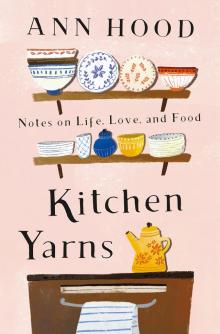 Kitchen Yarns
Kitchen Yarns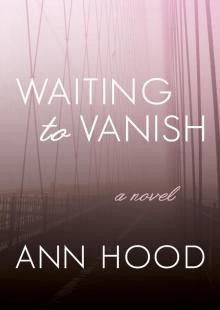 Waiting to Vanish
Waiting to Vanish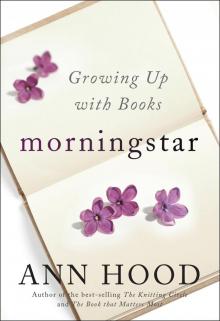 Morningstar
Morningstar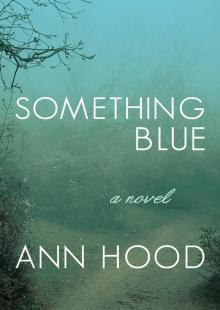 Something Blue
Something Blue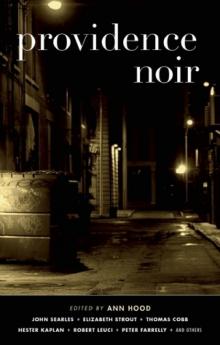 Providence Noir
Providence Noir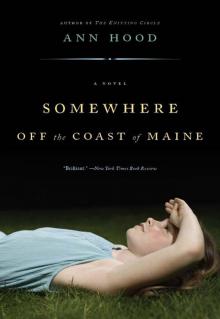 Somewhere Off the Coast of Maine
Somewhere Off the Coast of Maine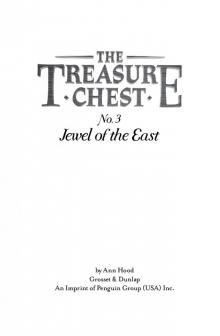 Jewel of the East
Jewel of the East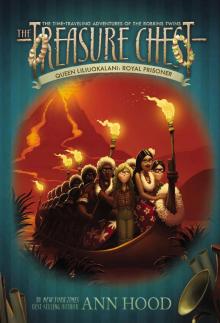 Queen Liliuokalani: Royal Prisoner
Queen Liliuokalani: Royal Prisoner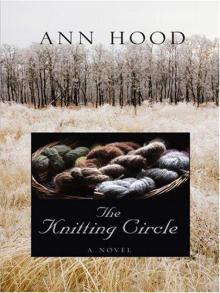 The Knitting Circle
The Knitting Circle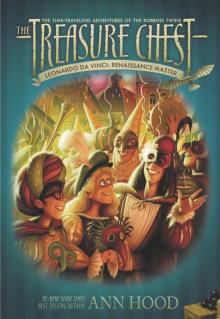 Leonardo da Vinci: Renaissance Master
Leonardo da Vinci: Renaissance Master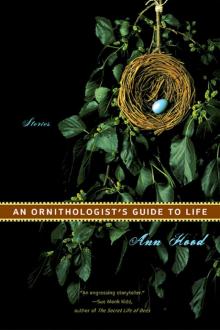 An Ornithologist's Guide to Life
An Ornithologist's Guide to Life The Red Thread
The Red Thread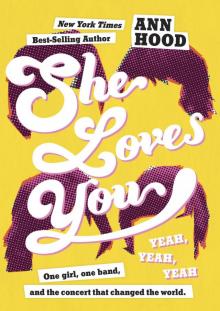 She Loves You (Yeah, Yeah, Yeah)
She Loves You (Yeah, Yeah, Yeah)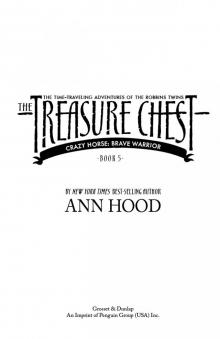 Brave Warrior
Brave Warrior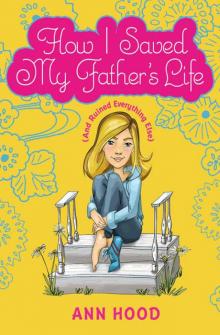 How I Saved My Father's Life (and Ruined Everything Else)
How I Saved My Father's Life (and Ruined Everything Else)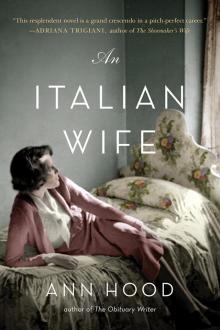 An Italian Wife
An Italian Wife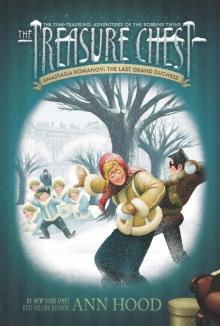 Anastasia Romanov: The Last Grand Duchess #10
Anastasia Romanov: The Last Grand Duchess #10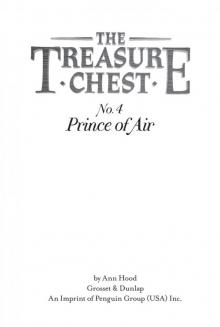 Prince of Air
Prince of Air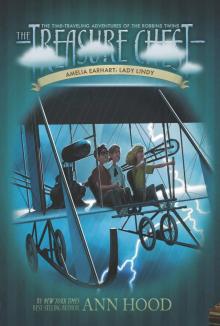 Amelia Earhart: Lady Lindy
Amelia Earhart: Lady Lindy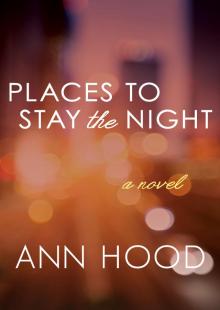 Places to Stay the Night
Places to Stay the Night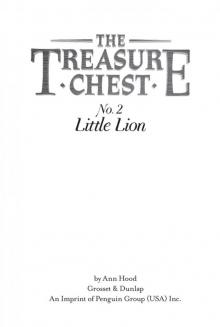 Little Lion
Little Lion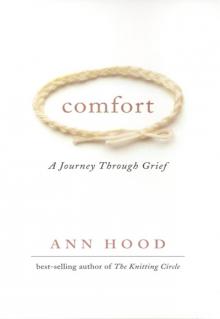 Comfort
Comfort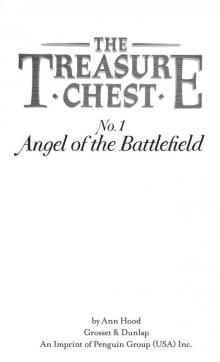 Angel of the Battlefield
Angel of the Battlefield